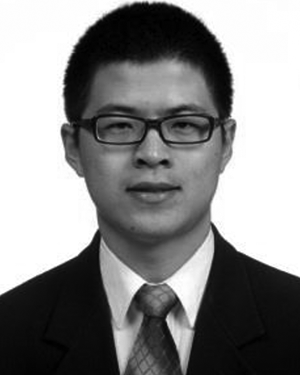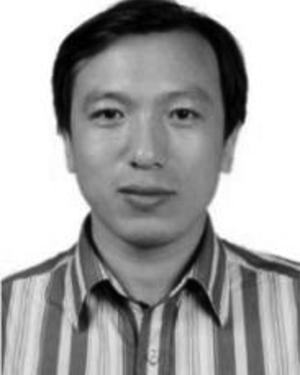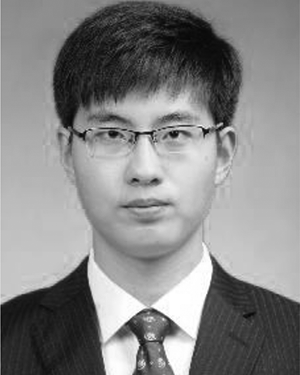Abstract:
This paper presents a novel field-weakening strategy combined with a modified discrete speed-adaptive full-order observer to improve the performance of speed-sensorless i...Show MoreMetadata
Abstract:
This paper presents a novel field-weakening strategy combined with a modified discrete speed-adaptive full-order observer to improve the performance of speed-sensorless induction machine drives in the field-weakening region. The robust field-weakening controller regulates the field current and the clamp of torque current according to the machine operating mode. Compared with the conventional inverse proportion to speed method and optimal flux level calculation method, the proposed controller shows the superiorities over maximum torque selection and parameter robustness. Moreover, a discrete speed-adaptive full-order observer is designed to estimate the rotor speed. However, when the machine operates at high speed, two poles of the conventional forward Euler approximation-based observer are outside the unit circle, which leads to system instability. To solve the conflict between stability, accuracy, and computational burden, a modified Euler approximation is used to discretize the observer. A comparative study of different approximations substantiates the presented approximation. The effectiveness of the proposed solution is demonstrated experimentally on an industrial induction machine drive.
Published in: IEEE Transactions on Power Electronics ( Volume: 31, Issue: 8, August 2016)
Funding Agency:

School of Electrical Engineering and Automation, Harbin Institute of Technology, Harbin, China
Bo Wang was born in Shandong, China, in 1987. He received the B.S.
degree in electrical engineering from Northwestern Polytechnical University, Xi’an, China, in 2011, and the M.S.
degree in electrical engineering from the Harbin Institute of Technology, Harbin, China, in 2013, where he is
currently working toward the Ph.D. degree in electrical engineering.
His research interests include induction machine drives and nonl...Show More
Bo Wang was born in Shandong, China, in 1987. He received the B.S.
degree in electrical engineering from Northwestern Polytechnical University, Xi’an, China, in 2011, and the M.S.
degree in electrical engineering from the Harbin Institute of Technology, Harbin, China, in 2013, where he is
currently working toward the Ph.D. degree in electrical engineering.
His research interests include induction machine drives and nonl...View more

School of Electrical Engineering and Automation, Harbin Institute of Technology, Harbin, China
Yongzheng Zhao was born in Heilongjaing, China, in 1991. He received
the B.S. degree in electrical engineering from the Harbin Institute of Technology, Harbin, China, in 2015, where he is
currently working toward the M.S. degree in electrical engineering.
His research interests include induction machine drives and fault diagnosis.
Yongzheng Zhao was born in Heilongjaing, China, in 1991. He received
the B.S. degree in electrical engineering from the Harbin Institute of Technology, Harbin, China, in 2015, where he is
currently working toward the M.S. degree in electrical engineering.
His research interests include induction machine drives and fault diagnosis.View more

School of Electrical Engineering and Automation, Harbin Institute of Technology, Harbin, China
Yong Yu was born in Jilin, China, in 1974. He received the B.S.
degree in electromagnetic measurement and instrumentation from the Harbin Institute of Technology (HIT), Harbin,
China, where he also received the M.S. and Ph.D. degrees in electrical engineering in 1997 and 2003, respectively.
From 2004 to 2014, he was an Associate Professor in the Department of Electrical Engineering, HIT, where he has been
a Professor of...Show More
Yong Yu was born in Jilin, China, in 1974. He received the B.S.
degree in electromagnetic measurement and instrumentation from the Harbin Institute of Technology (HIT), Harbin,
China, where he also received the M.S. and Ph.D. degrees in electrical engineering in 1997 and 2003, respectively.
From 2004 to 2014, he was an Associate Professor in the Department of Electrical Engineering, HIT, where he has been
a Professor of...View more

School of Electrical Engineering and Automation, Harbin Institute of Technology, Harbin, China
Gaolin Wang (M’13) received the B.S., M.S., and Ph.D. degrees
in electrical engineering from the Harbin Institute of Technology (HIT), Harbin, China, in 2002, 2004, and 2008,
respectively.
In 2009, he joined the Department of Electrical Engineering, HIT, as a Lecturer, where he has been a Professor of
electrical engineering since 2014. From 2009 to 2012, he was a Postdoctoral Fellow in Shanghai STEP Electric
Corporatio...Show More
Gaolin Wang (M’13) received the B.S., M.S., and Ph.D. degrees
in electrical engineering from the Harbin Institute of Technology (HIT), Harbin, China, in 2002, 2004, and 2008,
respectively.
In 2009, he joined the Department of Electrical Engineering, HIT, as a Lecturer, where he has been a Professor of
electrical engineering since 2014. From 2009 to 2012, he was a Postdoctoral Fellow in Shanghai STEP Electric
Corporatio...View more

School of Electrical Engineering and Automation, Harbin Institute of Technology, Harbin, China
Dianguo Xu (M’97–SM’12) received the B.S. degree in
control engineering from Harbin Engineering University, Harbin, China, in 1982, and the M.S. and Ph.D. degrees in
electrical engineering from the Harbin Institute of Technology (HIT), Harbin, China, in 1984 and 1989, respectively.
In 1984, he joined the Department of Electrical Engineering, HIT, as an Assistant Professor, where since 1994, he
has been a Professor. He ...Show More
Dianguo Xu (M’97–SM’12) received the B.S. degree in
control engineering from Harbin Engineering University, Harbin, China, in 1982, and the M.S. and Ph.D. degrees in
electrical engineering from the Harbin Institute of Technology (HIT), Harbin, China, in 1984 and 1989, respectively.
In 1984, he joined the Department of Electrical Engineering, HIT, as an Assistant Professor, where since 1994, he
has been a Professor. He ...View more

School of Electrical Engineering and Automation, Harbin Institute of Technology, Harbin, China
Zhen Dong was born in Jiangsu, China, in 1994. He is currently
working toward the B.S. degree in electrical engineering at the Harbin Institute of Technology, Harbin, China.
His research interests include induction machine drives and robust control theories and applications.
Zhen Dong was born in Jiangsu, China, in 1994. He is currently
working toward the B.S. degree in electrical engineering at the Harbin Institute of Technology, Harbin, China.
His research interests include induction machine drives and robust control theories and applications.View more

School of Electrical Engineering and Automation, Harbin Institute of Technology, Harbin, China
Bo Wang was born in Shandong, China, in 1987. He received the B.S.
degree in electrical engineering from Northwestern Polytechnical University, Xi’an, China, in 2011, and the M.S.
degree in electrical engineering from the Harbin Institute of Technology, Harbin, China, in 2013, where he is
currently working toward the Ph.D. degree in electrical engineering.
His research interests include induction machine drives and nonlinear control theories and applications.
Bo Wang was born in Shandong, China, in 1987. He received the B.S.
degree in electrical engineering from Northwestern Polytechnical University, Xi’an, China, in 2011, and the M.S.
degree in electrical engineering from the Harbin Institute of Technology, Harbin, China, in 2013, where he is
currently working toward the Ph.D. degree in electrical engineering.
His research interests include induction machine drives and nonlinear control theories and applications.View more

School of Electrical Engineering and Automation, Harbin Institute of Technology, Harbin, China
Yongzheng Zhao was born in Heilongjaing, China, in 1991. He received
the B.S. degree in electrical engineering from the Harbin Institute of Technology, Harbin, China, in 2015, where he is
currently working toward the M.S. degree in electrical engineering.
His research interests include induction machine drives and fault diagnosis.
Yongzheng Zhao was born in Heilongjaing, China, in 1991. He received
the B.S. degree in electrical engineering from the Harbin Institute of Technology, Harbin, China, in 2015, where he is
currently working toward the M.S. degree in electrical engineering.
His research interests include induction machine drives and fault diagnosis.View more

School of Electrical Engineering and Automation, Harbin Institute of Technology, Harbin, China
Yong Yu was born in Jilin, China, in 1974. He received the B.S.
degree in electromagnetic measurement and instrumentation from the Harbin Institute of Technology (HIT), Harbin,
China, where he also received the M.S. and Ph.D. degrees in electrical engineering in 1997 and 2003, respectively.
From 2004 to 2014, he was an Associate Professor in the Department of Electrical Engineering, HIT, where he has been
a Professor of electrical engineering since 2014. His current research interests include electrical motor drives,
power quality mitigation, and fault diagnosis and tolerant control of the inverter.
Yong Yu was born in Jilin, China, in 1974. He received the B.S.
degree in electromagnetic measurement and instrumentation from the Harbin Institute of Technology (HIT), Harbin,
China, where he also received the M.S. and Ph.D. degrees in electrical engineering in 1997 and 2003, respectively.
From 2004 to 2014, he was an Associate Professor in the Department of Electrical Engineering, HIT, where he has been
a Professor of electrical engineering since 2014. His current research interests include electrical motor drives,
power quality mitigation, and fault diagnosis and tolerant control of the inverter.View more

School of Electrical Engineering and Automation, Harbin Institute of Technology, Harbin, China
Gaolin Wang (M’13) received the B.S., M.S., and Ph.D. degrees
in electrical engineering from the Harbin Institute of Technology (HIT), Harbin, China, in 2002, 2004, and 2008,
respectively.
In 2009, he joined the Department of Electrical Engineering, HIT, as a Lecturer, where he has been a Professor of
electrical engineering since 2014. From 2009 to 2012, he was a Postdoctoral Fellow in Shanghai STEP Electric
Corporation. He has authored more than 30 technical papers published in journals and conference proceedings. He is the
holder of seven Chinese patents. His current main research interests include permanent magnet synchronous motor (PMSM)
drives, high-performance direct drive for traction system, position sensorless control of ac motors, and efficiency
optimization control of Interior PMSM.
Gaolin Wang (M’13) received the B.S., M.S., and Ph.D. degrees
in electrical engineering from the Harbin Institute of Technology (HIT), Harbin, China, in 2002, 2004, and 2008,
respectively.
In 2009, he joined the Department of Electrical Engineering, HIT, as a Lecturer, where he has been a Professor of
electrical engineering since 2014. From 2009 to 2012, he was a Postdoctoral Fellow in Shanghai STEP Electric
Corporation. He has authored more than 30 technical papers published in journals and conference proceedings. He is the
holder of seven Chinese patents. His current main research interests include permanent magnet synchronous motor (PMSM)
drives, high-performance direct drive for traction system, position sensorless control of ac motors, and efficiency
optimization control of Interior PMSM.View more

School of Electrical Engineering and Automation, Harbin Institute of Technology, Harbin, China
Dianguo Xu (M’97–SM’12) received the B.S. degree in
control engineering from Harbin Engineering University, Harbin, China, in 1982, and the M.S. and Ph.D. degrees in
electrical engineering from the Harbin Institute of Technology (HIT), Harbin, China, in 1984 and 1989, respectively.
In 1984, he joined the Department of Electrical Engineering, HIT, as an Assistant Professor, where since 1994, he
has been a Professor. He was the Dean of School of Electrical Engineering and Automation, HIT, from 2000 to 2010. He
is currently the Vice President of the HIT. His research interests include renewable energy generation technology,
power quality mitigation, sensorless vector controlled motor drives, and high-performance PMSM servo system. He has
published more than 600 technical papers.
Dr. Xu is an Associate Editor of the IEEE Transactions on Industrial Electronics and IEEE Journal of
Emerging and Selected Topics in Power Electronics. He serves as the Chairman of the IEEE Harbin Section.
Dianguo Xu (M’97–SM’12) received the B.S. degree in
control engineering from Harbin Engineering University, Harbin, China, in 1982, and the M.S. and Ph.D. degrees in
electrical engineering from the Harbin Institute of Technology (HIT), Harbin, China, in 1984 and 1989, respectively.
In 1984, he joined the Department of Electrical Engineering, HIT, as an Assistant Professor, where since 1994, he
has been a Professor. He was the Dean of School of Electrical Engineering and Automation, HIT, from 2000 to 2010. He
is currently the Vice President of the HIT. His research interests include renewable energy generation technology,
power quality mitigation, sensorless vector controlled motor drives, and high-performance PMSM servo system. He has
published more than 600 technical papers.
Dr. Xu is an Associate Editor of the IEEE Transactions on Industrial Electronics and IEEE Journal of
Emerging and Selected Topics in Power Electronics. He serves as the Chairman of the IEEE Harbin Section.View more

School of Electrical Engineering and Automation, Harbin Institute of Technology, Harbin, China
Zhen Dong was born in Jiangsu, China, in 1994. He is currently
working toward the B.S. degree in electrical engineering at the Harbin Institute of Technology, Harbin, China.
His research interests include induction machine drives and robust control theories and applications.
Zhen Dong was born in Jiangsu, China, in 1994. He is currently
working toward the B.S. degree in electrical engineering at the Harbin Institute of Technology, Harbin, China.
His research interests include induction machine drives and robust control theories and applications.View more


